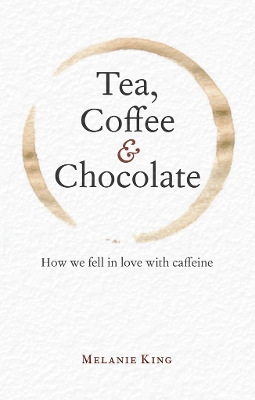I really liked this little book; I thought it was very well done and very readable. BUT... I don't know if I'd necessarily recommend it to everyone; I would, but with a caveat.
The book itself is split into three sections, one each for tea, coffee and chocolate. Each section outlines England's 'discovery' of each drink; it's very specific to England, although the author does lightly touch upon Spain's use of chocolate in the preceding decades before England embraced it. In addition to the historical commentary (and reproductions of historical tracts and illustrations), King briefly mentions current research into each drink and its health benefits. King focusses only on the drinks themselves and avoids entirely anything tangential to their history.
So here's my caveat: the writing leans towards the dry and academic. It's still a very readable book, but it's not chatty or witty or entertaining. It is well-researched and I never found it boring; I looked forward to opening it each night - even for the section on coffee, and I can't stand the taste of coffee. I found the whole of it interesting and informative, but if you're looking for a dash of entertainment with your history, you might be disappointed by this one.
The one thing that did disappoint me was a few glaring copy-editing errors. The book is published under the name of the Bodleian Library, so I sort of expected, if not perfection, at least not obvious extra or missing words. It's also possible that I have Oxford on a rather high pedestal and should get over myself. What did I learn from this book? I need to drink more chocolate.
